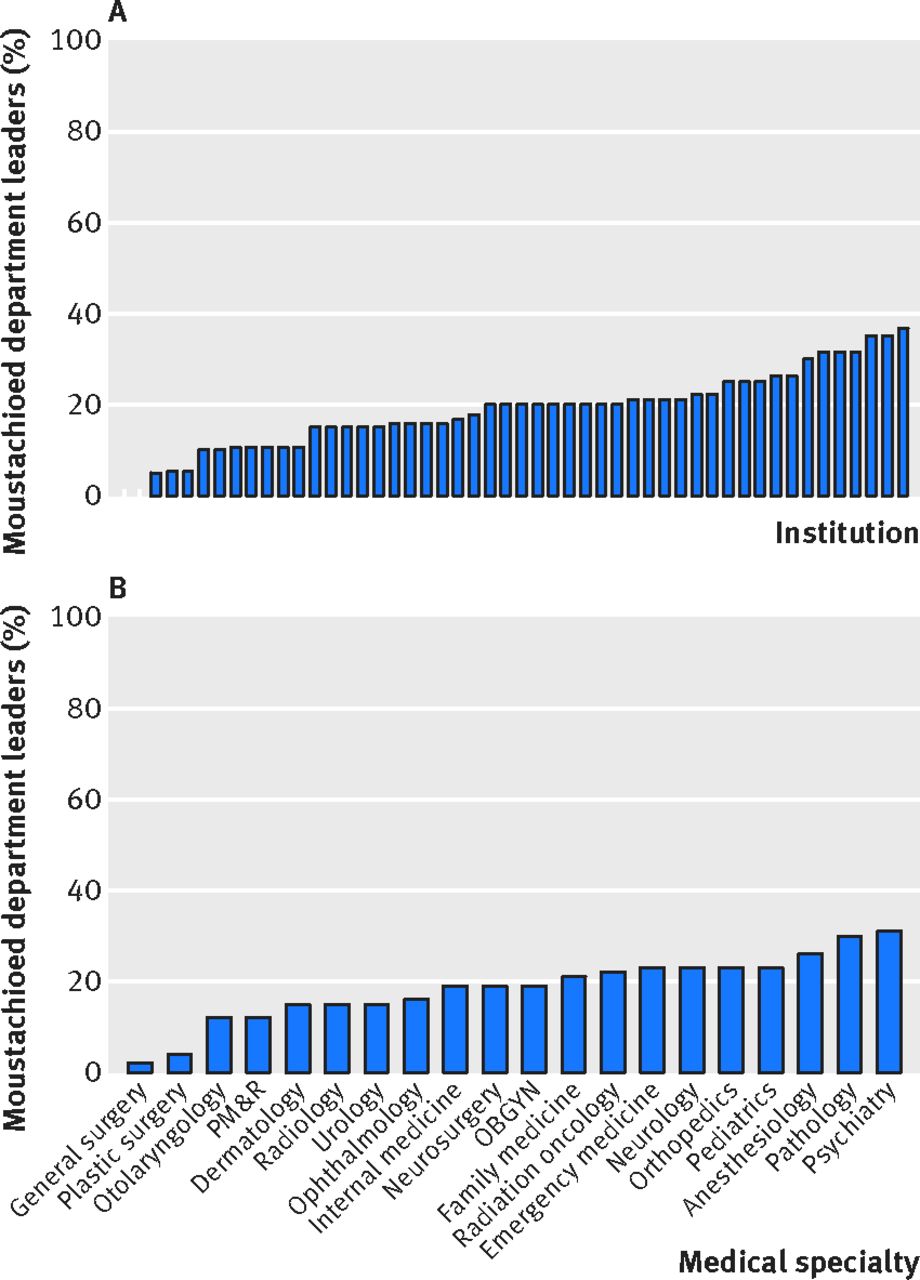Men with moustaches outnumber women in top US academic medical jobs


Get involved with our crowdsourced digital platform to deliver impact at scale
Stay up to date:
Economic Progress
This article is published in collaboration with Thomson Reuters Foundation trust.org
Men sporting moustaches are more likely than women to head medical departments in 50 leading U.S. medical schools, highlighting a need to redress the balance of sexes, researchers said on Wednesday.
Women accounted for 13 percent of department leaders in the top U.S. medical schools funded by the National Institutes of Health, while mustachioed men made up 19 percent, the U.S. team of researchers said in a study published in The BMJ.
“We want to increase the representation of women in academic medical leadership by drawing attention to sex disparities,” they said.
“We chose to study moustaches … because they are rare, and we wanted to learn if women were even rarer,” they said.
All forms of moustache were counted, including the Copstash Standard, Pencil, Handlebar and Supermario, as well as moustaches in combination with other facial hair such as the Van Dyke, the Balbo and the Napoleon III Imperial.
Men with beards but no moustache were excluded from the count.
The thickest moustache density was found in departments of psychiatry, pathology and anesthesiology.
Women made up more than 20 percent of department leaders in just five specialities – obstetrics and gynecology, pediatrics, dermatology, family medicine, and emergency medicine.
“This is a problem not only because of the strong ethical argument for equality but also for practical reasons: in business, having more women leaders has been linked with better performance,” the study said.
Many employers have taken steps to reduce these gaps by adopting policies against discrimination and sexual harassment, introducing family-friendly benefits and offering paid parental leave.
But more needs to be done, including increasing flexibility in working hours and reducing unconscious bias in the hiring process, the researchers said.
To change the study statistics, deans would have to increase the number of women, or ask department leaders to shave their moustaches, they said.
“The latter choice could have detrimental effects on workplace satisfaction and emotional wellbeing of mustachioed individuals. Deans are left with one option: to hire, retain, and promote more women.”
Earlier this year, a study found that more men named John run large U.S. companies than women. About 5.3 percent of CEOs in S&P 1500 companies were called John, 4.5 percent were called David – and 4.1 percent were women.
Publication does not imply endorsement of views by the World Economic Forum.
To keep up with the Agenda subscribe to our weekly newsletter.
Author: Alex Whiting is a Journalist at The Thomson Reuters Foundation, focusing on conflicts and humanitarian crises, women’s rights and corruption.
Image: A doctor wearing a protective mask attends to a patient at the San Juan de Dios Hospital in Guatemala City. REUTERS/Jorge Dan Lopez.
Don't miss any update on this topic
Create a free account and access your personalized content collection with our latest publications and analyses.
License and Republishing
World Economic Forum articles may be republished in accordance with the Creative Commons Attribution-NonCommercial-NoDerivatives 4.0 International Public License, and in accordance with our Terms of Use.
The views expressed in this article are those of the author alone and not the World Economic Forum.
Related topics:
The Agenda Weekly
A weekly update of the most important issues driving the global agenda
You can unsubscribe at any time using the link in our emails. For more details, review our privacy policy.
More on Economic ProgressSee all
Joe Myers
April 19, 2024
Joe Myers
April 12, 2024
Joe Myers
April 5, 2024
Pooja Chhabria
March 28, 2024
Kate Whiting
March 28, 2024
Joe Myers
March 28, 2024








